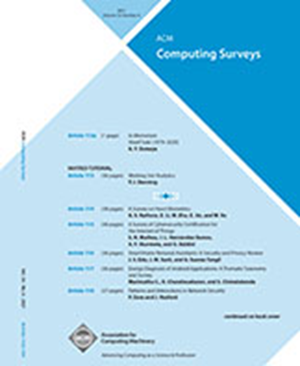利用基础模型进行工具学习
IF 23.8
1区 计算机科学
Q1 COMPUTER SCIENCE, THEORY & METHODS
引用次数: 0
摘要
人类拥有创造和使用工具的非凡能力。随着基础模型的出现,人工智能系统有可能像人类一样善于使用工具。这种模式被称为 "工具学习与基础模型",它结合了工具和基础模型的优势,从而提高了解决问题的准确性、效率和自动化程度。本文对工具学习进行了系统研究和全面评述。我们首先介绍了工具学习的背景,包括其认知起源、基础模型的范式转变以及工具和模型的互补作用。然后,我们回顾了现有的工具学习研究,并提出了一个总体框架:从理解用户指令开始,模型应学会将复杂任务分解为多个子任务,通过推理动态调整计划,并通过选择适当的工具有效地完成每个子任务。我们还讨论了如何训练模型以提高工具使用能力,并促进工具学习的泛化。最后,我们讨论了几个需要进一步研究的开放性问题,如确保工具使用的可信度、利用基础模型创建工具以及应对个性化挑战。总之,我们希望本文能对未来将工具与基础模型相结合的研究有所启发。本文章由计算机程序翻译,如有差异,请以英文原文为准。
Tool Learning with Foundation Models
Humans possess an extraordinary ability to create and utilize tools. With the advent of foundation models, artificial intelligence systems have the potential to be equally adept in tool use as humans. This paradigm, which is dubbed as tool learning with foundation models , combines the strengths of tools and foundation models to achieve enhanced accuracy, efficiency, and automation in problem-solving. This paper presents a systematic investigation and comprehensive review of tool learning. We first introduce the background of tool learning, including its cognitive origins, the paradigm shift of foundation models, and the complementary roles of tools and models. Then we recapitulate existing tool learning research and formulate a general framework: starting from understanding the user instruction, models should learn to decompose a complex task into several subtasks, dynamically adjust their plan through reasoning, and effectively conquer each sub-task by selecting appropriate tools. We also discuss how to train models for improved tool-use capabilities and facilitate generalization in tool learning. Finally, we discuss several open problems that require further investigation, such as ensuring trustworthy tool use, enabling tool creation with foundation models, and addressing personalization challenges. Overall, we hope this paper could inspire future research in integrating tools with foundation models.
求助全文
通过发布文献求助,成功后即可免费获取论文全文。
去求助
来源期刊

ACM Computing Surveys
工程技术-计算机:理论方法
CiteScore
33.20
自引率
0.60%
发文量
372
审稿时长
12 months
期刊介绍:
ACM Computing Surveys is an academic journal that focuses on publishing surveys and tutorials on various areas of computing research and practice. The journal aims to provide comprehensive and easily understandable articles that guide readers through the literature and help them understand topics outside their specialties. In terms of impact, CSUR has a high reputation with a 2022 Impact Factor of 16.6. It is ranked 3rd out of 111 journals in the field of Computer Science Theory & Methods.
ACM Computing Surveys is indexed and abstracted in various services, including AI2 Semantic Scholar, Baidu, Clarivate/ISI: JCR, CNKI, DeepDyve, DTU, EBSCO: EDS/HOST, and IET Inspec, among others.
 求助内容:
求助内容: 应助结果提醒方式:
应助结果提醒方式:


